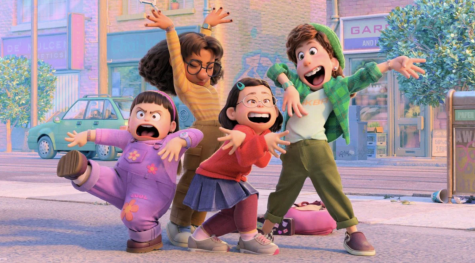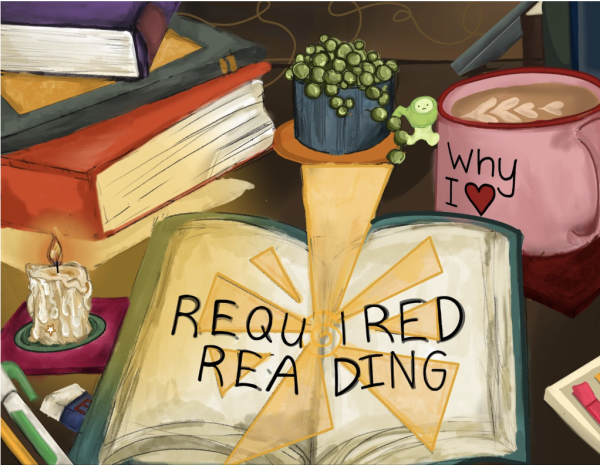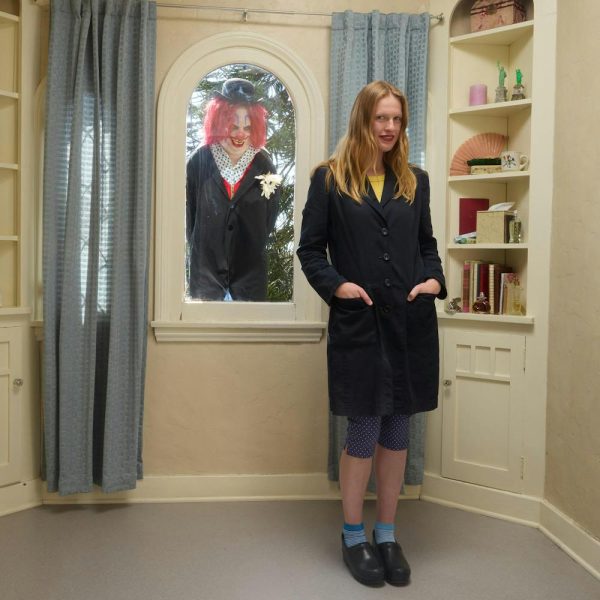What Turning Red Taught Me About Embracing Imperfection
Mei Mei as a Red Panda Pictured with Her Mom and Tyler (Right) and Friends (Left) Miriam, Priya, and Abby (Left to Right).
Growing up as an Asian American, I didn’t see a lot of Disney movies I could relate to. I would be dressed up in Cinderella and Bell princess gowns wishing I could be like them. Besides Mulan, I never saw a Disney movie that I could see myself in. Further, I had never seen these movies cover real life situations I could relate to, at least not until Turning Red came out on March 11, 2022 on Disney+. It filled up my “For You page” on Tik Tok, and I kept hearing how many Asian Americans could relate to the movie. Excited, I decided to watch the movie myself.

The movie takes place in Toronto, Canada, following 13 year old Mei Mei, an Asian Canadian girl and obedient daughter who loses herself as she tries to live up to her mom’s expectations.
One day, Mei Mei wakes up as a big red panda, and everything changes. Turning into a red panda is passed on through each generation of Mei Mei’s family through the female line. Her mother and family see this as a generational curse rather than a gift. Mei Mei realizes that she finds freedom through her identity as a red panda and it offers an escape from the pressure her mom puts on her to be “perfect little Mei Mei.”
The red panda in the film represents one’s “authentic self”, an expression of culture and identity. Mei Mei’s mother was once just like Mei Mei, also controlled in many aspects of her life by her mom. Mei Mei’s grandma even said that Mei Mei’s mother’s red panda ruined their relationship.
Mei Mei’s mother projects her own generational trauma by being overprotective of Mei Mei. She sets the same high standard for Mei Mei that her mother set for her.
I can relate to Mei Mei since I also set a high standard for myself in many aspects of my life. Whether it be in my grades at school or extracurriculars, I always want to be at my best. I don’t feel like I have a choice in failing my classes or giving up on extracurriculars. I do want to be the best version of myself, but I also feel pressure from my parents — I want to make them happy and ultimately fear their disappointment. I think about how much they have sacrificed for me to be here, as many first generation children of immigrants do, and I feel guilty if I don’t do what my parents want me to. It would be like their sacrifices were for nothing.
The invisible expectations and pressure that I feel have left me with the feeling that nothing I do will ever be good enough until it is “perfect.”
At one point in the movie, Mei Mei travels to a different realm, hoping to get rid of her red panda, and faces her mother as a teenager. Her mother says, “I’m just so sick of being perfect, I’m never going to be good enough for [my mom] or anyone.” Mei Mei responds with, “I know it feels that way, like all the time, but it isn’t true.” This is the first time in the movie where the audience sees how generational trauma has affected Mei Mei’s mom.

This scene hit close to home. It helped me realize that it is okay to be imperfect, even if pressures and expectations from parents are still present. What matters most is trying my best and it isn’t necessary to be perfect all the time.
Even though I want to make my parents happy and satisfied, I’ve realized that I also have to focus on what I want and what brings me joy. This movie taught me that suppressing who you are for the sake of your parents makes you lose yourself. I’m faced with the dilemma every day of trying to find the middle line of what I want versus what my parents want. But by doing what I enjoy, I can accept myself and be who I am. The parts of us that are messy shouldn’t be pushed away but should be embraced.




























![Dr. Zanita Kelly, Director of Lower and Middle School, pictured above, and the rest of Westridge Administration were instrumental to providing Westridge faculty and staff the support they needed after the Eaton fire. "[Teachers] are part of the community," said Dr. Kelly. "Just like our families and students."](https://westridgespyglass.org/wp-content/uploads/2025/03/dr.-kellyyy-1-e1748143600809.png)



























